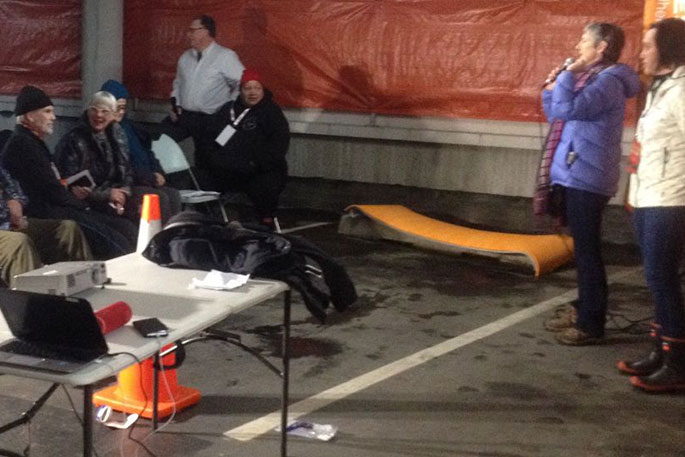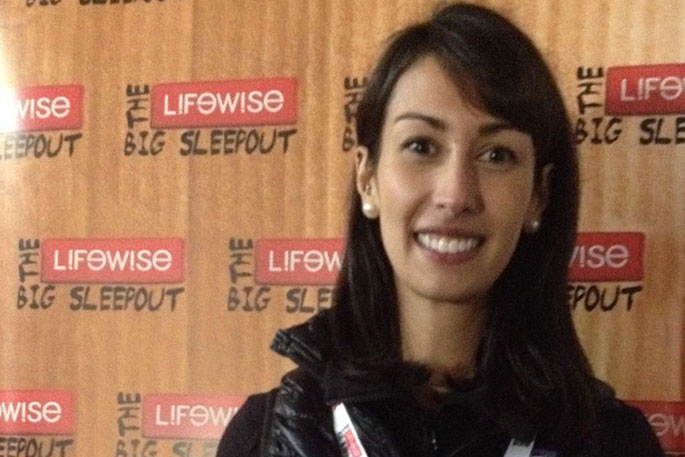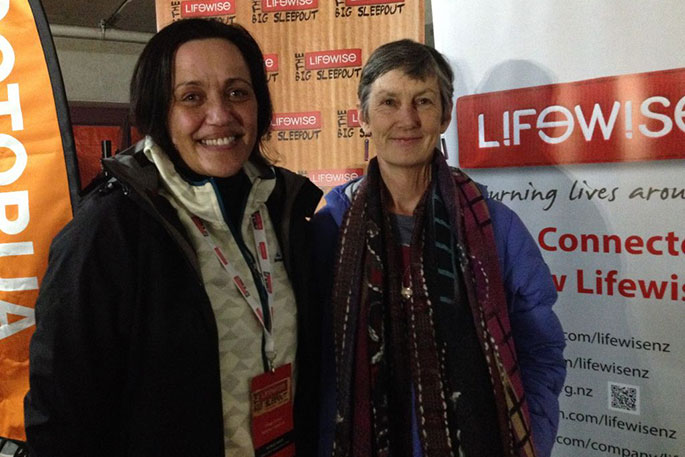Rotorua's Big Sleepout – the third since 2015 – attracted a Canadian and Kiwis from everywhere.
Now living in Winnipeg, Erica Vas cut an impressive figure as she spoke using a smattering of te reo, referring to this country as Aotearoa, setting an example for locals.
Erica was speaking to a group of people in the Rotorua CBD about how under-privileged, the homeless and dispossessed, spent their nocturnal hours.
They came from all walks of life, public figures like the entertainer Turanga Merito and such local politicians as Mayor Steve Chadwick, deputy Mayor Dave Donaldson and Waiariki MP Tamati Coffey.
After brief introductions by each of those who for one night had sacrificed the easy life for the uneasy life, dollops of kai were served before they settled in sleeping bags on the concrete floor of the first level of the Rotorua Lakes Council's carpark, on the corner of Amohia and Pukuatua streets.
On one of Rotorua's balmiest nights in several months, the fortunates heard epithets of the lives of those who have spent some of their lives on the streets of Rotorua and elsewhere.
 Big sleep – Rotorua Mayor Steve Chadwick and deputy mayor Dave Donaldson among the prominent locals to sleep in Rotorua's parking lot.
Big sleep – Rotorua Mayor Steve Chadwick and deputy mayor Dave Donaldson among the prominent locals to sleep in Rotorua's parking lot.
One told how he was neglected as he was gay and was raised by a transgender parent.
This and other stories were hardly bedtime tales designed to cast the volunteers into sweet dreams.
Moira Lawler, the chief executive of Lifewise which oversaw the programme, says Housing First has turned the traditional model on its head.
'If you had mental health or issues or physical health or were unwell – you had to address all those things before you got access to housing. What Housing First is about, is that people have a right to be housed as is where is,” Moira says.
Once housed, it's a matter of what those newly housed want to do next.
The programme was developed for long-term homeless people for most of their adult lives.
'You'd be surprised (at the number of homelessness) – in Rotorua we did a rough count in 2018 and there are between 50 and 80 ‘rough' sleeping on the streets in Rotorua,” Moira says.
'That's quite a lot of people given that it's a really small community.”
One example, though, of the gravitas the movement has gained is support from Deloitte, a multinational support agency, and other significant outlets such as the council.
Support came once the issues were understood.
'People are starting to understand it's an issue that happens everywhere.”
Erica Vas, whose Masters is in development practice and indigenous development, is here as part of her international placement.
 Erica Vas.
Erica Vas.
'Homelessness really matters to me back at home,” she says. 'I have the opportunity to come here.”
She says she brings a lot of 'who I am” and have a reciprocal relationship.
Did Canada have similar problems with indigenous folk as evident in Rotorua?
'Definitely; homelessness in Canada is an issue but I would say its disproportionately affected in Canada especially women and children.”
While the Rotorua scene is not uncommon compared with Canada, 'this is pretty exceptional to be here with the community in this capacity for Lifewise and Housing First to bring us together and to have the trust to have all the whanau together – this is something I've never had experience before”.
Working together was how such groups could move forward.



0 comments
Leave a Comment
You must be logged in to make a comment.